Are you considering divorcing an abusive husband? If you feel overwhelmed at the thought of hiring a lawyer or fighting for custody? To discover if you’re emotionally abused, take this free emotional abuse quiz.
Wendy, an attorney, joins Anne Blythe, M.Ed. to talk about divorcing an abusive husband. To learn strategy for dealing with and abusive husband before and after divorce, enroll in The Betrayal Trauma Recovery Living Free Workshop.
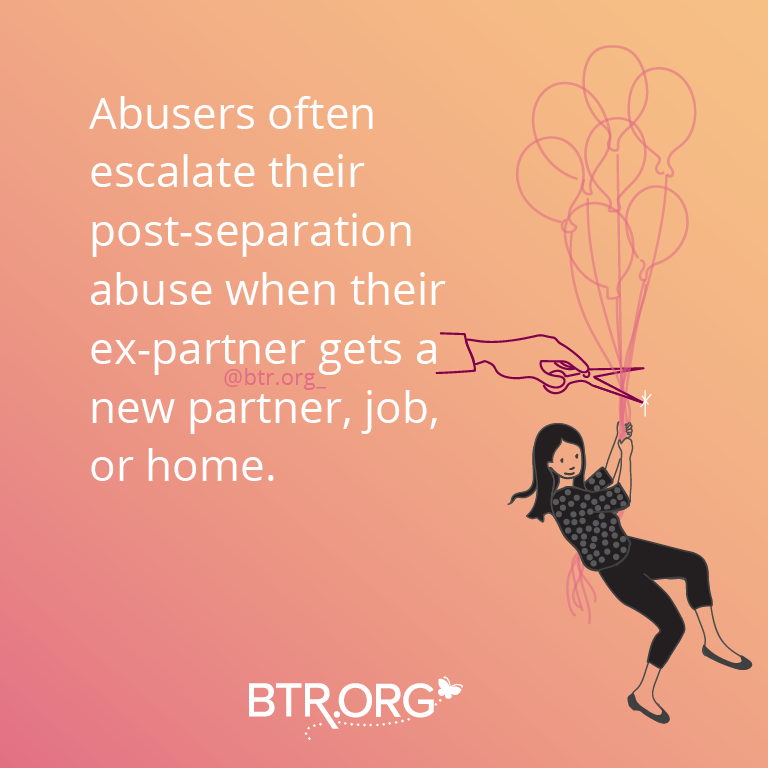
Hiring An Attorney When Divorcing An Abusive Husband
Abuse and betrayal victims may feel daunted and overwhelmed at the idea of interviewing and hiring an attorney. Here are some helpful tips for choosing an attorney when divorcing an abusive husband:
- Interview more than one attorney
- Make sure your attorney understands narcissism and post-separation abuse
- Choose an attorney that will fight for you, but not stir the pot
- Make sure that you understand your attorneys fees from the get-go
- Select an attorney that you feel comfortable and safe with
Victims can enlist trusted friends to help them in the attorney selection process. This is not a decision that needs to be rushed and women can trust their intuition through the process.
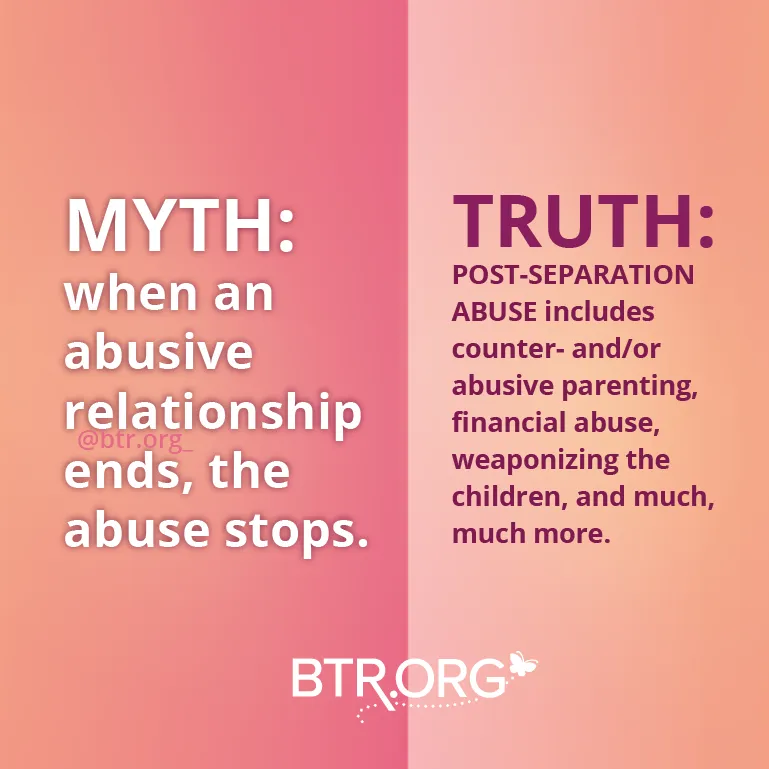
Find Healthy Ways To Work Through The Trauma While Divorcing An Abusive Husband
Get the emotional help you need, so your attorney can help you. When women try to navigate the legal system while carrying heavy burdens of trauma and living in constant fight-or-flight mode, they may have trouble making decisions. Emotionally-based decisions tend to muddy the waters and make it difficult for victims to think strategically.
Victims can choose to process their trauma and express their emotions in safe and consistent ways by joining support groups, like the Betrayal Trauma Recovery Group, so that when it’s time to focus on the legal aspect of their situation, they can give it their full attention.
Divorcing An Abuser 101: Understand “Best Interest Factors”
When working through a custody battle, it’s important that victims understand the concept of “best interest factors” – or, what the courts will be considering as the important issues that determine who the children should be spending their time with.
Wherever you are in your journey to healing, Betrayal Trauma Recovery is here for you.
Custody battles, divorce, and discovering a partner’s infidelity are all life-altering, traumatic experiences. Betrayal Trauma Recovery Group Sessions offers the support that you need as you navigate this trying time. Join today and find the community that you deserve.
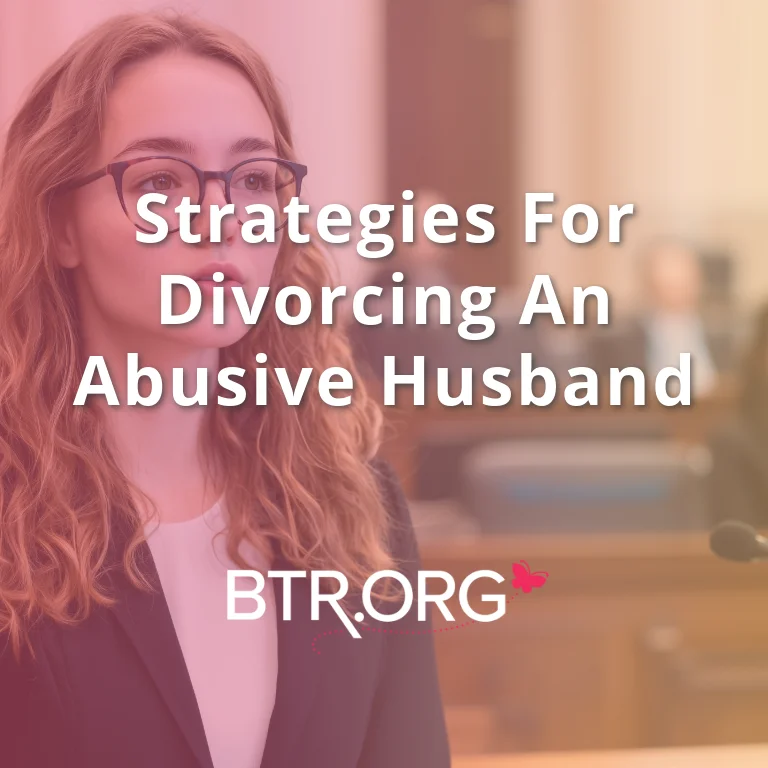
Transcript: Divorcing An Abusive Husband
Anne: I have Wendy Hernandez on today’s episode. Wendy is a courtroom lawyer who has tackled every type of family law matter from divorce to child custody, to everything in between. Welcome Wendy.
Wendy: Thank you, Anne. It’s wonderful to be here.
Anne: So many of our listeners are just finding out about their husband’s abuse, their husband’s pornography use, or his double life. And they’re starting to wrap their head around the fact that they might be in an abusive relationship. So we have that segment of listeners. Then we have a segment of listeners who are now looking back on their marriage post divorce. They’re like, whoa, I didn’t realize that all the stuff that happened to me is an example of emotional abuse.
Those women, when it comes to the law, are most concerned about upcoming custody issues that have happened since the divorce. Let’s first talk to that first demographic of women who are just coming out of the fog of abuse. Maybe some of them are thinking, can I stay in this marriage? They’re maybe starting to think about divorce.
To those women, what types of things are important for them? As they’re considering, should I considering steps toward divorcing an abusive husband?
Wendy: Yes, so first and foremost, you have to think about your safety and the safety of your children. And I know that many women feel guilty about leaving marriages for spiritual reasons. What is at risk is your life and the lives of your children. If you have children. When they’re in these relationships that are not only life threatening, but soul crushing.
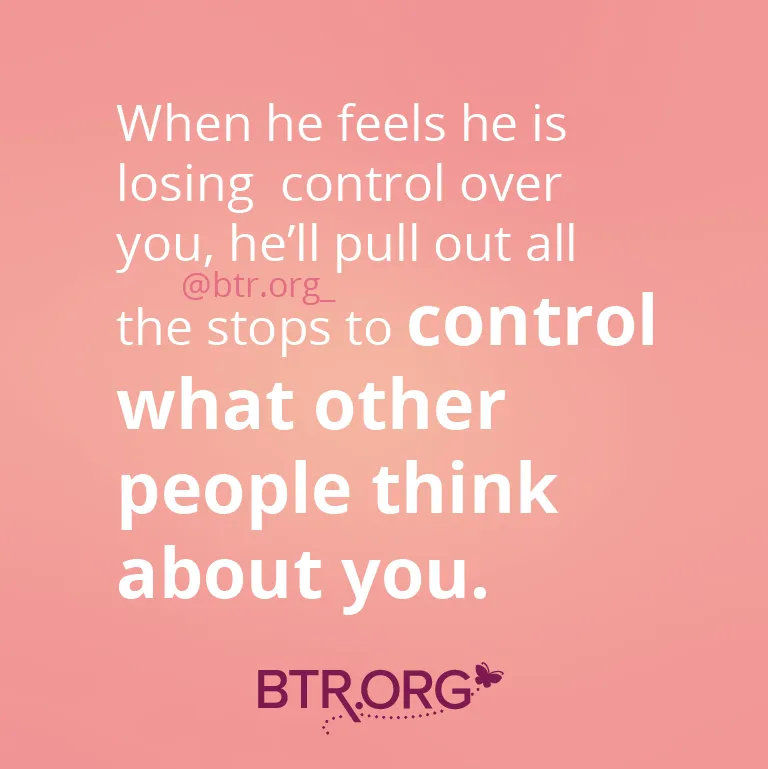
Emotional & Psychological Safety Strategies
Wendy: If you are in danger, start preparing to get out. I wouldn’t say get out until you’ve put some thought into it, until you have a plan in place, and you have some safe people that you can rely upon to help you get through this, because you will need the support from an emotional standpoint. So first and foremost, use Anne and the resources she has available to determine whether you’re safe or not.
Anne: Yeah, she’s talking about The Betrayal Trauma Recovery Living Free Workshop, which helps women determine their husband’s character, to see how safe he is. And then we’ll give you emotional and psychological safety strategies, both in terms of setting boundaries, but also how to communicate so that you can protect your emotions no matter what stage you’re in.
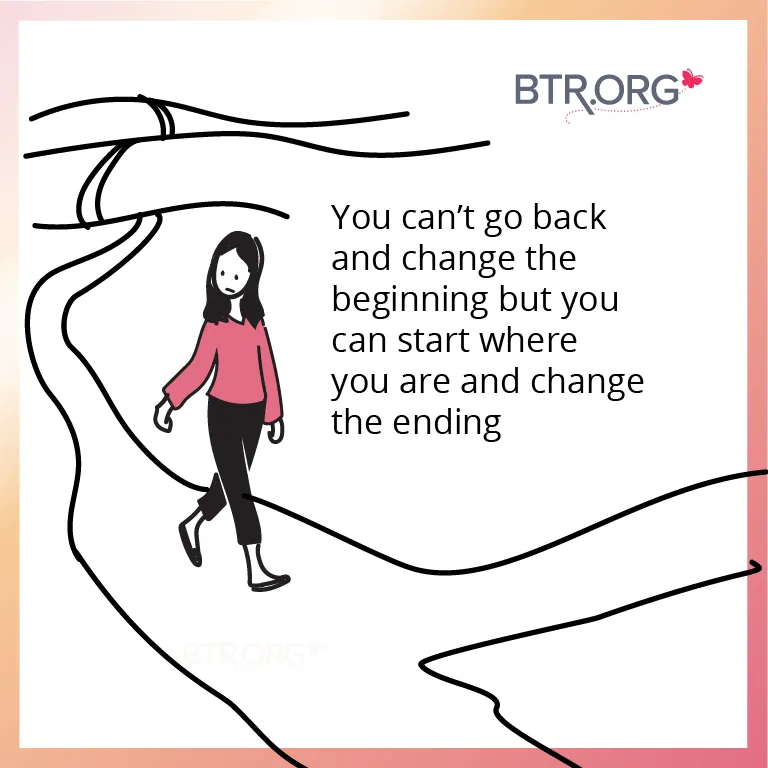
Challenges Divorcing An Abuser
Even if you’re never going to consider divorcing an abusive husband, they will still help you emotionally. They’ll still help you get to emotional and psychological safety.
Wendy: If you decide you’re not safe or your children are not safe, then it’s time to leave. I want to share a story about a potential client I met with last week. She had just wanted to get through the divorce, and her attorney at the time really pressured her. Let’s just get through this. And as a result, she agreed to joint custody of her children. So fast forward about a year later, and the abuse is getting worse. It’s affecting the children. He’s starting to direct it towards them.
Her attorney was a man, but essentially he encouraged her to sweep the abuse under the rug. This is an example of how divorcing an abusive husband can be complicated. You have to be in alignment with what you know to be the truth. That may mean you have to stand up to people you think are actually on your side.
Legal & Financial Abuse In Divorce
Wendy: Sometimes emotional abuse is legal and financial abuse that occurs while divorcing an abusive husband. The abuser says, you know, if you persist. Then I’m going to bleed you financially. So it can also turn into a type of scorched earth litigation, where it goes on for not just months, but years. And everything is destroyed in the process. So, whoever’s going through this, they have to evaluate what makes sense for them.
Because if everything’s destroyed, if all bank accounts are destroyed. Or you lose your friends and family, which sometimes can happen with emotional abusers. They tend to get into the heads of people we love and convince the friends and family that the victim is actually the crazy one. It’s hard for me to tell people how to navigate that without knowing the circumstances of each individual case, but you just got to know what can happen.
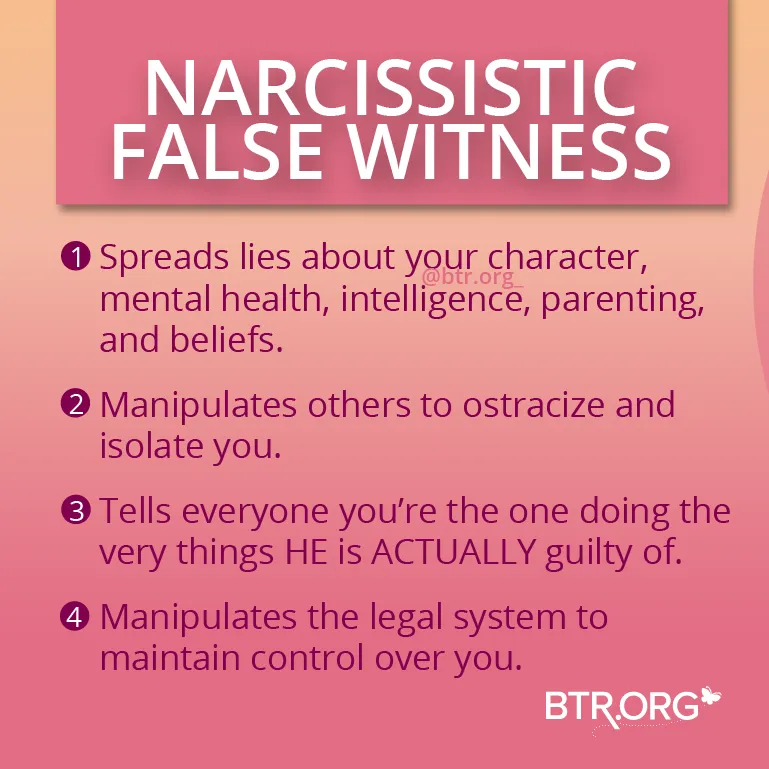
Anne: Let’s talk about the injustices of that situation. So many victims are just horrified when they find out they need to compromise with their abuser. And I just want to say out loud and acknowledge that it isn’t fair, it’s not okay, and it shouldn’t be the case. But because it is the case, can we talk about how victims can maybe reframe it. Because it’s really, really devastating. Like I’m never going to get help, no one’s ever going to help me. This is how abusers gaslight the victim and the system.
Wendy: Yeah, the judiciary needs a lot of education, especially when it comes to emotional abuse. I believe, and you probably agree, that it is the least recognized form of abuse. Judges usually only sit up and notice when there’s physical abuse and doctor’s reports.
Divorcing An Abusive Husband: Healing & Moving On
Wendy: There’s this saying I like to tell my clients, and that is, do you want to be right or do you want to be done? And again, you have to find that balance between the truth and moving on with your life. Because I feel like true healing begins when you can do this initial separation. If it’s a physical or legal separation from the abuser, and then less burdened and more able to get on with the healing.
The longer you’re enmeshed in this litigation, you’re just embroiled in it, and it’s hard to move on. It’s hard to heal when constantly getting messages from an attorney or ex about whatever legal matters are pending. Or when you’re having to go to court. So, there’s a lot to be said for healing.
And I feel like when somebody can throw off the shackles by finally divorcing an abusive husband, they can fly. They can become more than they’ve ever imagined. I believe their potential is unlimited, but while that oppressor is still involved in every aspect of their life and still controlling them, it’s hard to get to that place.
Anne: Yeah, women wonder how long it will take to heal from emotional abuse and healing cannot happen until we can protect ourselves. Let’s talk about post separation abuse and how that affects women. When people think, I’ll help this victim escape this abusive marriage. And then everything will be fine. And they don’t realize that divorce does not solve abuse. Sometimes, it can escalate the abuse through either legal abuse, or abusing the kids.
Many women are horrified. They think, Oh, he’s a good guy. I think the divorce will go okay. Then it gets worse during the divorce. And then it’s even worse after the divorce. So can you talk about post separation abuse?
Keeping Communications In Writing
Wendy: It’s fairly common sense, but many people forget about it, so it bears repeating here. And that is, if you can, keep all your communications in writing with the abusive ex. You may not have had those communications prior to separation, there’s no reason why you shouldn’t be. You should be for your own protection, for the protection of your kids. And when you’re divorcing an abusive husband, he will try to bend the rules, get the survivor to do what he wants.
And use the children as pawns in this game. So keeping communications professional and to the point and centered on the children is important. When you end up in court again, and I say when, because it’s probably going to happen if you’re dealing with an abuser. So the documentation is key. There are certain programs available. One’s called Our Family Wizard.
And these programs help keep track of the communications. A judge can even access the communications if the judge wants to, to look at what’s been going on between the parties. So where somebody may not have had documentation prior to separation or divorce. They can have plenty of documentation after.
And I’ve had many victims of abuse who have used those post separation communications to gain an advantage in a post divorce lawsuit regarding custody of the children. So documentation is key. Avoid verbal communication, verbal contact with the abuser because they will make promises they will not keep, they will say things were said that were not said.
And as you know, because they are so charming and they’re so convincing, there are many cases where the judge believes them. So just keep it in writing. That’s my best advice.
Strategic Messaging Workshop
Anne: So when women enroll in the Living Free Workshop they’ll learn how to use strategy to protect themselves. I’ve seen it happen with so many victims. Their abusers’ messages sound so nice. He says, hey, if we could just get together and talk about this, we can work it out. If you’re divorcing an abusive husband, don’t fall for this.
It is grooming or hoovering because they want to hook us back in. Then they’ll say all kinds of stuff that’s not documented. And I talk all about that in the Betrayal Trauma Recovery Living Free Workshop. Can you talk about the scenario where women are groomed through written communication? And that grooming manipulates them to drop their guard and talk to their abuser in person, and how you’ve seen that backfire.
Wendy: Yes, we are raising awareness of this right now, it happens all the time. To the victim, survivor out there, do not drop your guard. You know this person, and you know how they can flip. You know how they can turn, and they’re not going to change after the divorce is over. So don’t let down your guard. You have to maintain your resolve. And keep those communications in writing.
I don’t see any reason why all communication should not be in writing, and I would never let down the guard. The abuser could go a few years and not do anything offensive. You let down your guard. And then boom, they smack you. So it’s important to you and your children not to let down the guard and keep it all in writing, because it does backfire.
Divorcing An Abusive Husband: Court Perception Of Communication
Anne: How do the courts see that scenario? So for example, if an abuser said, hey, I’ve been trying to talk to her. I keep sending her these emails, and then he shows the judge the emails. And in the emails he’s like, why can’t we talk? Why can’t we work it out? How do judges see those types of communications?
Wendy: So I think judges have a problem when a person is not responding at all, and I would say never do that. Especially if the abuser is emailing, hey, there’s this issue with the kids, and let’s try to work it out. Always respond to those. I’ve seen people get into trouble where they completely shut down. That’s normal. It happens. You know, you have PTSD, and there are ways to respond without having to respond. We’ve talked about that, Anne.
Anne: Yeah, exactly. Those are the strategies I teach in The Betrayal Trauma Recovery Living Free Workshop. It’s a way of responding that protects you. It protects your emotions, but also protects you and your kids during the process of divorcing an abuser.
Wendy: Yes, and I’ve had somebody lose custody of their children before. Because the judge said, listen, people share joint custody when they can co-parent, but you’re not responding.
So that tells me that you cannot co-parent. Therefore, I’m giving custody to the abuser. So respond always, keep the response short. We know the abuser will go on and on for pages about whatever the issues are. And if you can, distill it down to what the real issues are, and respond very short and succinctly, and keep it on point.
Working Through Writing Messages
Wendy: But don’t ignore communications. Anne, I don’t know if you want to talk about what we discussed.
Anne: Yeah, The Betrayal Trauma Recovery Living Free Workshop strategies, yeah, women have seen amazing results with these strategies. It’s not legal advice, so it’s not the same as talking with an attorney or coming up with a legal strategy. But it is a communication strategy, and it works whether you’re married or divorced. Before I wrote the workshop. I didn’t know if it was a fluke, it worked for me, and would it work for other women.
So I mentored women, and we worked through writing their messages with the criteria I came up with. And all the women I worked with had great results in court. Their messages looked spotless in court. They looked like they could co-parent well. One of the women I mentored, her ex, had taken her to court five times after divorcing an abusive husband, for custody things, five times.
She told me, Anne, nothing has helped me, like The Living Free. This is a game changer. I’m going to win this case. And I don’t think he’s ever going to come after me again. I was so glad to hear that. The messages in the The Living Free workshop are actual real messages of women that I mentored. So some of them are consolidated or clarified, but these are the actual abusers messages and then the strategic messages back.
I do have a section of examples of what’s not strategic, so that women can see the difference.
Keep The Lines Of Communication Flowing
Anne: The cool thing about Betrayal Trauma Recovery is it’s not just that. If you need to talk to somebody about the strategies. Our coaches can help. So. It’s a game changer for women.
Wendy: Yes, the important thing is that the lines of communication are flowing. It doesn’t matter how they’re flowing, as long as they’re flowing. If somebody’s helping a victim respond to emails and communications about the kids. As long as that communication is happening and represents what the victim and survivor wants and thinks is best for the children.
I don’t see why a judge would have a problem with that. Not responding is what I think could potentially cause a person to have issues with the court.
Anne: Is there anything else for women considering divorce when married to an abusive husband that you see them do in the beginning? Maybe they don’t realize this is a trap that’s not going to hurt me right now, but it might hurt me in five years or 10 years.
Wendy: The main thing is denying or saying, avowing that there was no abuse in the relationship. That could potentially hurt down the road.
Anne: So are you saying they don’t necessarily need to bring it up if they’re using strategy? But they should never say it didn’t happen. So they should never write an affidavit or something that says there was no abuse. Because then that will be held against them later.
Wendy: Yes, and the second thing is getting the help they need from somebody like you and the people on your team. As an attorney, I often see women making. decisions based on emotion, or they can’t make decisions because they are so emotional. And it makes the case really hard to move forward.
Divorcing An Abusive Husband: Attorneys Aren’t Trained In Emotional Abuse
Wendy: For me as an attorney, I’m not a trained professional in this area. I do my best. And most attorneys are not trained that way. And it would be amazing if all my emotionally abused clients could get the help they need. Because I think if they have self care after emotional abuse, the legal aspect of it flows a lot better. Because they’re not in the fight or flight state of mind all the time, which makes things foggy.
They can see the options available to them and make a decision based on reason. So get the emotional help you need, so your attorney can help you. If you don’t have an attorney helping you so you can see what’s available, see what’s at stake. And make a decision based on reason.
Anne: Now let’s talk to this other group of women who’ve already been through divorcing an abusive husband. Perhaps they didn’t have an attorney who understood abuse, and now it’s after the fact. So they can’t go back in time. So maybe now they’re looking for a modification or looking to solve some of their post divorce problems. What are some of the things that you see women having trouble with when they’re trying to navigate post divorce legal issues with an abuser?
Wendy: One thing that I see frequently. I’ve just had a string of cases where my clients dealt with this. The client and the children continued to have the same issues they experienced during the marriage. And so we brought this to the attention of the judge, and what the judge said is that this is no different than what you told me two years ago. There’s not been a change in circumstances. So because of that, I’m leaving things as they are.
Proving Changes In Circumstances
Wendy: So, you have to be mindful of the changes, the differences between what you went through. And now fast forward two, three, four, five years from now. And you have to distinguish what is happening now from what happened when the divorce happened. Because the judge will be looking at what changed. And even though the claims may be the same as you made during the divorce.
If you can point to, hey, the kids are having trouble in school. Or hey, the kids pediatrician thinks they need some sort of mental health counseling because of X, Y, Z. If there are changes in health, even though the base issues are the same. If you have some third party saying these issues are causing some real effects, that would be helpful.
Anne: Yeah. And we’re positioned a little differently, because you’re an attorney and they’re hiring you to help them take their ex to court. I don’t recommend they ever take their ex back to court, but instead use the Living Free Strategies.
Because court is so risky, you can lose in court more than you already have. And it gets dangerous, you know? It’s different for you, because you’re an attorney and they’re hiring you to do that. So they’ve decided they want to do that. They don’t know there’s another option. Like strategy is an option, and you can use strategy out of court.
Wendy: Yes, yes in one of the cases I had where the judge said there was no change in circumstances. The judge was looking hard for something. And one of the kids had difficulties in school. But the records didn’t reflect what the judge wanted to see.
Book Recommendation
Wendy: If there’s documentation, that’s helpful, but you need to work with your attorney when you are divorcing an abusive husband. You need to look at the rules and your jurisdiction to see what the guidelines are in terms of modifying custody, decision-making, or parenting time. If there’s a change in circumstances, be sure to prove it. Otherwise, the judge will dismiss the case. At worst, the judge could make you pay the other party’s attorney’s fees and costs, which is never good.
Anne: We’re going to take a break here for just a second. It’s so hard to find professionals who understand this type of abuse, emotional abuse, psychological abuse, and coercion. Many of you may have found an attorney that you feel good about, but they don’t get it. One option is to give them a copy of my book, Trauma Mama Husband Drama. It has infographics in the back.
It helps professionals and other people understand this type of abuse in a really quick way, because it’s a picture book, and they’re way more likely to read a picture book. Trauma Mama Husband Drama is a quick, awesome read that will help bring them up to speed. There are infographics at the back.
If you click on Trauma Mama Husband Drama, it’ll send you to Amazon. Put that in your cart. And then once you’ve received it, please circle back to Amazon, give it a five star rating. Every rating on Amazon helps isolated women find us. Even if they don’t purchase the book, they may become aware, through that review. And through the things you said on Amazon of this podcast, that’s free to everyone.
Divorcing An Abusive Husband: Overwhelm & Taking Small Steps
Anne: One of the things I’ve seen with victims is they get so overwhelmed. They’re overwhelmed with, what am I going to do for money, with childcare, and because their abuser is still manipulating them and confused. And also, they’ve got other people in their life saying, you need to forgive him. Why are you doing this? They just feel so overwhelmed.
That even considering some of these legal issues, even calling several different attorneys to set up appointments for consultations to see which attorney would be good, is really hard for a victim. What questions should they ask when they have the strength to start calling around to find an attorney that’s going to work for them? Do you have any tips on that?
Wendy: Yes, all of us get overwhelmed at various points during our lives for different reasons. And I’ve found myself in places of overwhelm. There are times when I feel like I can’t talk or make a move, overwhelm just paralyzes me. And what I have found to help me when I’m overwhelmed is to stop and think about, okay, what is my goal? Short term and long term goals, what needs to be done in this situation?
And then, I chart out a few steps towards that goal. Then I take one step in the direction of that goal. It could be picking up the phone. It doesn’t necessarily have to be an attorney. But it could be to a friend or family member who’s going to help you feel brave. Make the call to the attorney eventually, tomorrow or next week, but take one step.
Arrangements With Attorneys
Wendy: All these little steps will add up. If you can commit to taking a step every day or a couple of steps every day. So that’s what helps me with overwhelm, is just breaking it down and taking a step. And not worrying about other steps that need to be taken. Or thinking if I don’t take this step, then this is going to happen, then this, and then this is going to happen, and it’s all going to crumble. Don’t think about that. Just think about the step in front of you.
As far as getting an attorney when you’re divorcing an abusive husband, referrals are a great source. And oftentimes my clients come to me because a friend referred them, or a family member, or by somebody down the line who used me in the past. So if you feel comfortable, talk to other people, ask people in the community. And if you don’t want people to know that you’re asking for yourself, have somebody ask for you.
Get an attorney who understands abuse and narcissism. There are many attorneys in the world, and there are many who advertise about abuse, but that doesn’t mean they know about it. So I would talk to them about cases they’ve had in the past, whether they’ve handled cases where there’s no physical abuse, or whether they’ve dealt with narcissists before. So ask them the right questions. Come up with the questions before you meet with the attorney.
You should also understand the financial arrangement with the attorney. Because many people aren’t clear on that, and they run out of money quickly, and they don’t know what happened. Then they’re left without an attorney at a critical part of the proceeding.
Balancing Conflict & Advocacy
Wendy: So you need to expect what the finances will look like, how long the case could potentially last, and how much money it could potentially cost, so you’re prepared. People have to get quiet and centered and feel what kind of person the attorney is. There are many attorneys out there who generate conflict because it means they’re going to make more money.
The more conflict, the more attorney fees there are, and the longer the case will last. Not all attorneys are that way. And I’m not saying you want an attorney who’s just going to lay down and be a rug. You want an attorney who’s going to fight for you, but not an attorney who’s going to intentionally stir the pot. And jack up the fees, create more conflict, and make you look bad in front of the judge because they are creating conflict.
So again, it’s a balance between the attorney who will fight for you, but one who is mindful of resources, which are almost always limited. Just really feel whether that person is a match for you. There are people who come to me sometimes, and they say, I need a junkyard dog. I know right off, that’s not a match for me, because that’s not the kind of attorney I am.
And it doesn’t mean I’m not assertive when I need to be, which is in the courtroom. And when I’m standing up for my client, but I’m just not a junkyard dog. I’m not hostile or aggressive. There are some people who want that. If you want and need that, and you go to an attorney, who’s not that. Your relationship will not go smoothly.
Divorcing An Abusive Husband: Be Patient
Wendy: I can tell you that from experience. So get clear on who you want from a personal quality and value standpoint, and look for that attorney. That attorney is out there and be patient. Don’t be afraid to interview more than one attorney. You don’t have to go with the first attorney you interview.
Anne: Thank you so much. Our listeners are super overwhelmed, but I want them to realize they need more education about this. So that they can avoid some of these long-term problems that many women in my community encounter when divorcing an abusive husband. Because they weren’t prepared, and you’re always going to run into problems that were unavoidable. So understanding the lay of the land with these legal issues is important.
Thank you, Wendy, for being on today’s episode.
Wendy: Thank you, Anne




This episode was so timely for me! I just received the court hearing date for the Custody Modification my ex filed over a year ago. Which is the second time he’s filed the same thing, the previous year was non suited and his attorney was disbarred. Go figure. He’s the abuser. Still. And his new wife is just as much with him to take my kids from me. It’s sickening. The psychological and emotional abuse is difficult to articulate and my kids are paying the price. Usually that’s blaming me and turning on me. This podcast was spot on. Evidence is necessary to back up your claims.
This is especially difficult with psychological abuse, however, it’s rooted in patterns. In my experience, we still have a long way to go to bring awareness of the harmful effects of the less visible abuses. Wendy’s advice is spot on. My original attorney did not advocate for me – she did not recognize it empathize with abuse of this nature. My new attorney gets it. We’re a good match and I’m so grateful. One thing that helps this is using our court ordered email service, Our Family Wizard. His messages, over time, are revealing. Thank you for answering this very question I’ve been seeking as I navigate again, a lawsuit.
Hi there, I am recently going through a divorce. After many attempts to Hoover me back in, my husband finally gave up and left the home in August 2021.
The six months of cohabitation from the day I asked for a divorce was hell on earth. The worst parts of him came out. He agreed to get therapy and be assessed in an attempt to reconcile. He was diagnosed with complex NPD. The greatest thing I did was build a tribe of supportive women. Without these five women I would not be where I am today. I was isolated for years and didn’t communicate much with these friends, but that’s when I realized through all this they truly were my friends as they joined forces with me and walked every dredging mile with me.
Each one brought something different. One was for financial advice, all 5 were spiritual support, one was the referee to help me snap out of my funky days when I wanted to quit, one was my encourager, one was experienced. My kids are 20,18 and 16 so court is not a problem for me. They also know who their dad is at this age and have decided to set boundaries with him on their own accord. I share a lot of narcissism info to help encourage others to stand up to emotional and psychological abuse.
My story is to help others and at the same time being healing as I talk it out. I did however block all family (inlaws, friends) who support him. I never thought I could really do it, divorce, but here I am. New career, sold the house, and moving to a new city all in 7 months. I encourage women to get knowledge! Knowledge is POWER!
I did not know anything about narcissism until February. After a thousand conflicts with my husband, I had enough. When he stone walled me for the next three days I started my research. The term narcissism kept coming up and long and behold, there it was!!! 22 years later I had a revelation. My husband was a narcissist. Then assessed months later is was confirmed. It gave me closure. It empowered me to know that it wasn’t all me. That weekend I made the destiny decision. It was over. My boys and I look forward already to peaceful days, no more eggshells no more gas lighting. God is good. God never said leave, but he graciously opened the door.
Your podcast helped me so much over the last two years.
I found out that my husband was imagining he was a woman and then imagine raping himself – along with all the exploitative material he consumed. I did not know this for 14 years of my marriage. The discovery and the after story is even worse.
My husband love bombed me after I discovered what he was doing and said he asked Jesus into his heart and was baptized. Because of that, I decided to stay with him. Plus, he promised to seek help/therapy and I got pregnant. At the time, our son was nine years old. I believed him until about three months later I found out there is no help for dissociation behavior, narcissism and lying. I stayed for 7 months after my little girl was born and then made the ultimate decision to leave.
When I filed for divorce he was already in another sexual relationship with in 10 days.
I would love to come on The Betrayal Trauma Recovery Podcast!! You’ve helped me so much. The whole year it took to finalize my divorce has been sooo hard. Divorcing an emotional abuser has been awful. But the hardest is having to send my children to my ex husband’s girlfriend house with unsupervised visitation. My ex husband has at least 3 of the 6 mental behavior issues that my children should be protected from, but the courts will not see him for the abuser he is. I have copies of his journals stating what he does. He didn’t know I took pictures of it before the divorce, but I did thinking it would help me protect my kids. I ended up settling my divorce 5 days ago instead of going to trial.
Tiffany! Yes, I’d love to have you come share your story. Contact my assistant kari@btr.org to set up an interview:). Hugs!